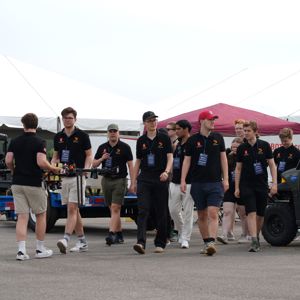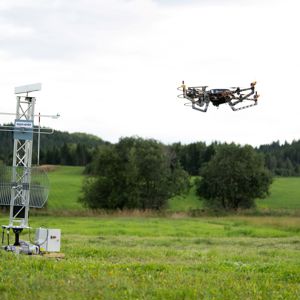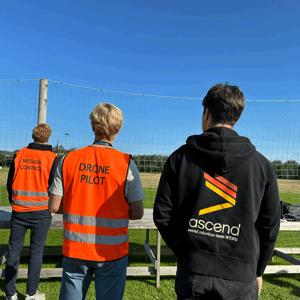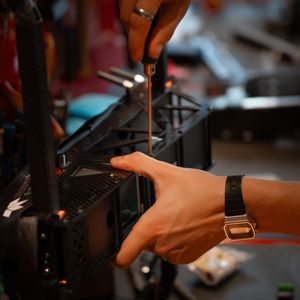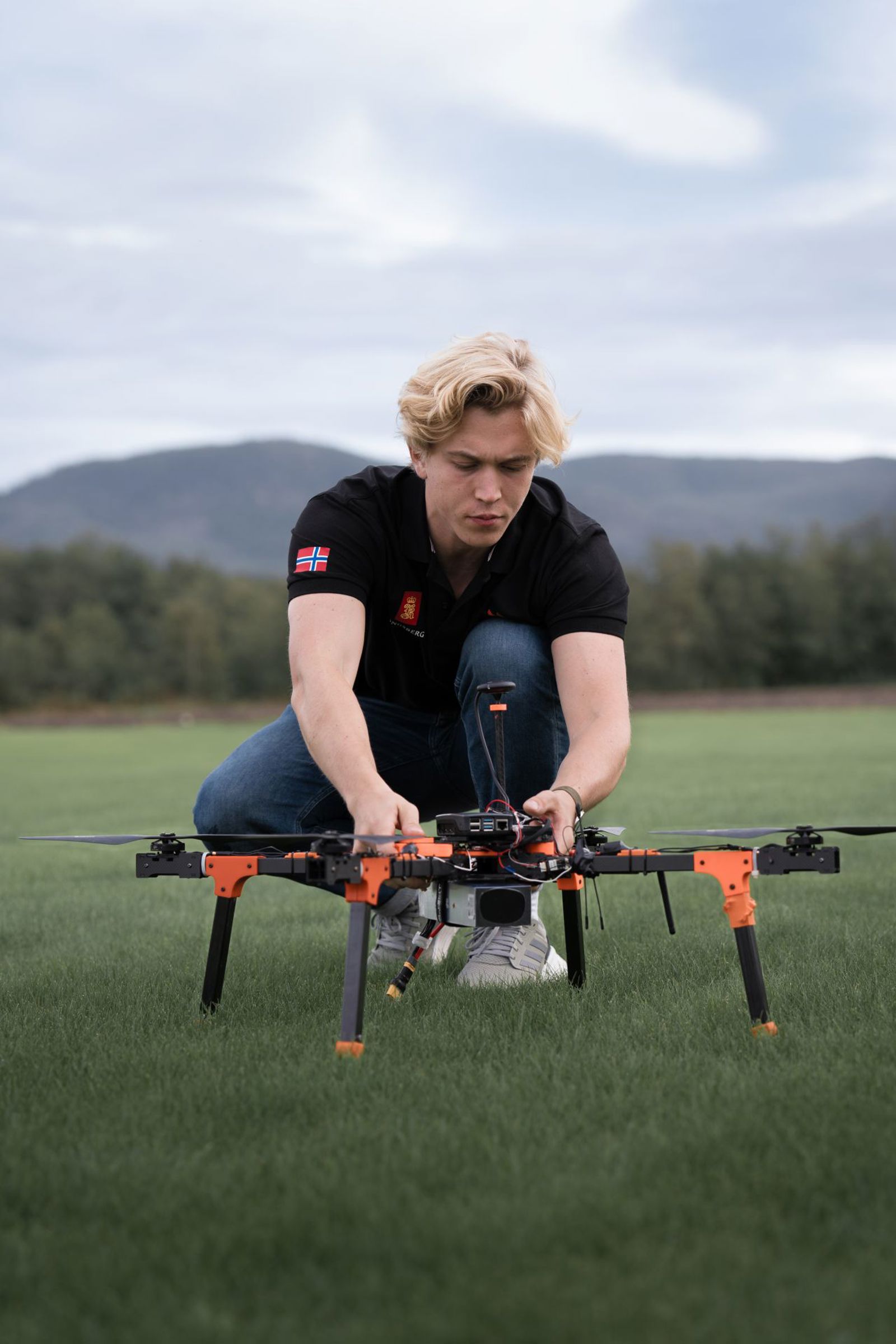
Mission impossible completed
“Impossible” missions no student team yet has completed with existing technology. This is what the talented members of Ascend NTNU are embarking on, year after year since 2016. As one of their main supporters since the very beginning, it’s fair to say we are proud and impressed with their development and accomplishments, leading up to this year’s victory, proving the impossible wrong.
-
Text:Anita Nyheim/ KONGSBERG
Photo:Ascend NTNU
The student organization Ascend NTNU are building competitive drones and creating new and innovative solutions to some of the most challenging problems in cybernetics and autonomy as of today. Composed of students from many different technical fields, they transform theory into firsthand experience and take part in challenging, international competitions like the International Aerial Robotics Competition (IARC). Each new competition scenario unveils a new drone design, and every year they admit new team members who add new layers to the foundation laid by their predecessors, making them more experienced and knowledgeable as the years unfold.
The core of Ascend's philosophy is continuous development and knowledge transfer. With more than 46 active members and 10-20 coaches, or former members, the organization maintains a rich culture of innovation and learning. This fosters an environment where seasoned expertise blends with new perspectives, leading to innovative ideas.
This November marked an important milestone for the organization and their supporters, when the small team from Norway proved the "impossible" Mission 9 in the IARC to be possible after all, and were announced as the winners of the whole competition, among 11 other teams from universities in the US, China and India!
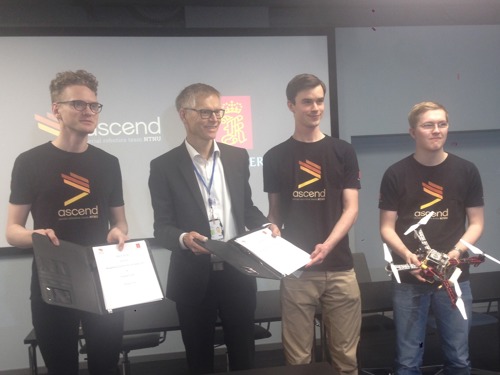
Interview with Leader Hans Bertil Olsson, Chief Engineer Glenn Varhaug and Head of Marketing, Katinka Fjellet Figved.
Developing our future engineers
During the years, the Acend teams have won several prices and technical awards. Until this November, their best ranking was made in 2019, when they won the awards for Best Technical Demonstration and Best System Design, and with that came in 1st place overall in the American Venue.
Mechanical Engineer in Kongsberg Defence & Aerospace, Kristian Sandaa is a former Ascend-member and was leading the team back in 2019. He speaks warmly about the organization and everything he has learned from his time there.
"The experiences I bring with me from Ascend are many", he says, "and they couldn't be more relevant for my current job. By putting theory into practise, Ascend challenges their members to collaborate across diciplines, develop innovative solutions and continously improve. It's really inspiring to see how they have continued to push the technical boundaries of aerial autonomy, and actually won the IARC this year," he says.
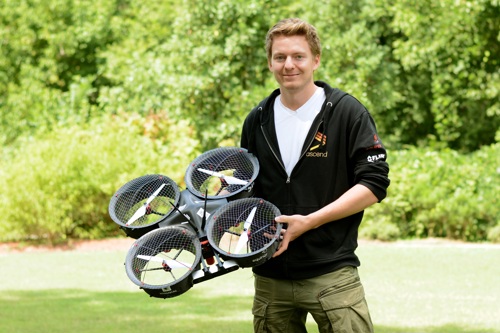
Winners of IARC Mission 9
The Norwegian team demonstrated all of the required behaviors called out in the Mission 9 official rules, representing a different set of challenges compared to previous missions, making it more challenging than ever before. The design team’s task was to create an aerial robot that could fly fully autonomous, use only onboard computing (no data links) and avoid other aerial robots and physical obstacles. The autonomous drone should be able to exchange a 2 kg communications module on a moving mast, on a ship moving with the waves, 3 km off the coast- all within 9 minutes- all autonomously.
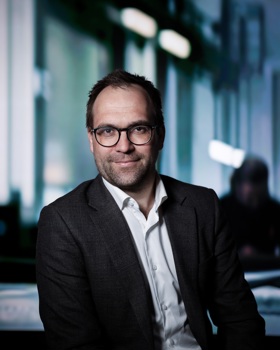
"This is indeed an important milestone for a student project that, since its humble beginning has built expertise and organization - and now reached a long-term goal."Bredo Larsen, Director HR Kongsberg Defence & Aerospace
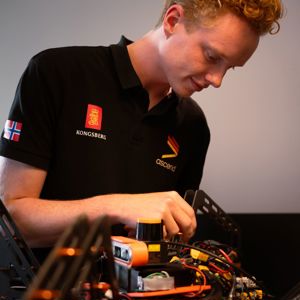
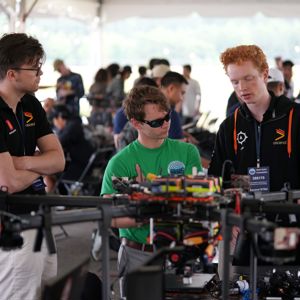
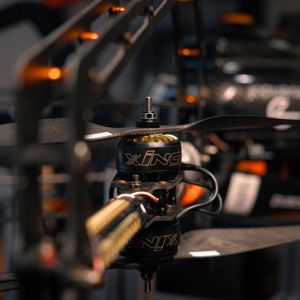
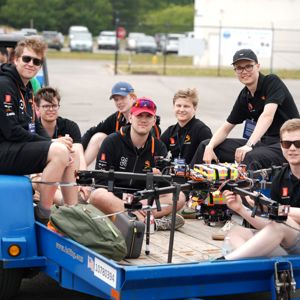
“The team putting forth the best performance was that of the Ascend team from the Norwegian University of Science and Technology (NTNU). This team demonstrated all of the required behaviors called out in the MISSION 9 Official Rules on several authenticated runs” -IARC Jury
Ascend NTNU responded to the challenge and developed “Nostromo”; an autonomous drone flying at more than 100km/h, carrying a 3kg advanced robot module and payload, to interact with moving objects. Using optical sensors and advanced computer vision, state estimation and mission planning algorithms, Nostromo is able to detect the communication module, estimate the masts movement, and replace the module. Nostromo is a result of a long iterative process where the teams went through several different designs, and has overcome lots of challenges. And after 4 years of hard work, it culminated with a well-earned and impressive victory.
Mission 9 Winning Run
"The collaboration with our main sponsor Kongsberg Defence & Aerospace means almost everything to us, and it has been crucial for our opportunity to evolve and be innovative. It provides us with the resources to build drones, and it facilitates a professional exchange and knowledge that enables our drones to be as good as they possibly can be. Your partnership is giving us the opportunity to make our visions become reality,” says Hans-Bertil Olsson, this year’s leader of Ascend NTNU.
"Kongsberg Defence & Aerospace has simultaneously accomplished multiple objectives through this partnership," says Bredo Larsen, HR Director, and points to goals like enhancing student motivation, facilitating practical learning, reducing dropout rates among engineering students, fostering interest in technical studies, as well as reinforcing employer branding.
Members of the Ascend team actively engage in a series of motivational presentations organized by Kongsberg Defence & Aerospace throughout the year. Recently, they visited our Technology seminar in Kongsberg to inspire 10th-grade students in the region in their upcoming educational decisions.
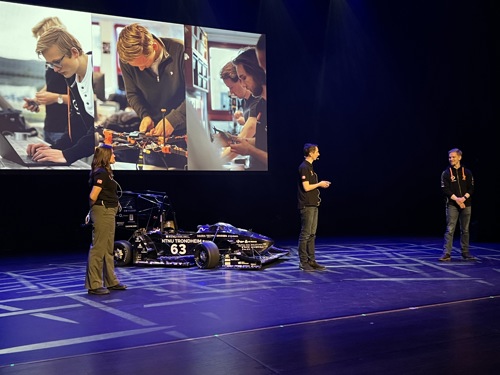
Next mission
It’s just around the corner for this year’s Ascend team to decide on the competitions and challenges they will participate in. Most likely, they will undertake a sequel of last years success, and embark on IARC Mission 10. The only thing they know for sure, is that this will be another innovative project utilizing the latest within drone technology.
Now, it’s up to this year's Ascend team to develop a drone capable of completing another mission impossible.
